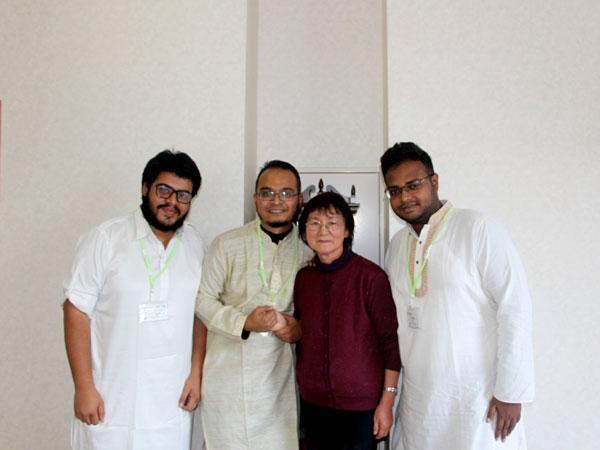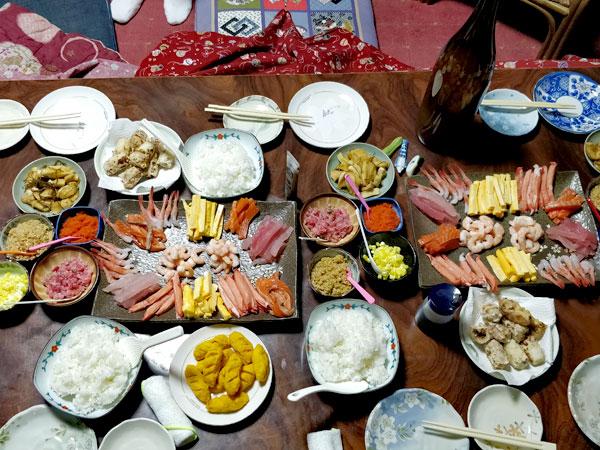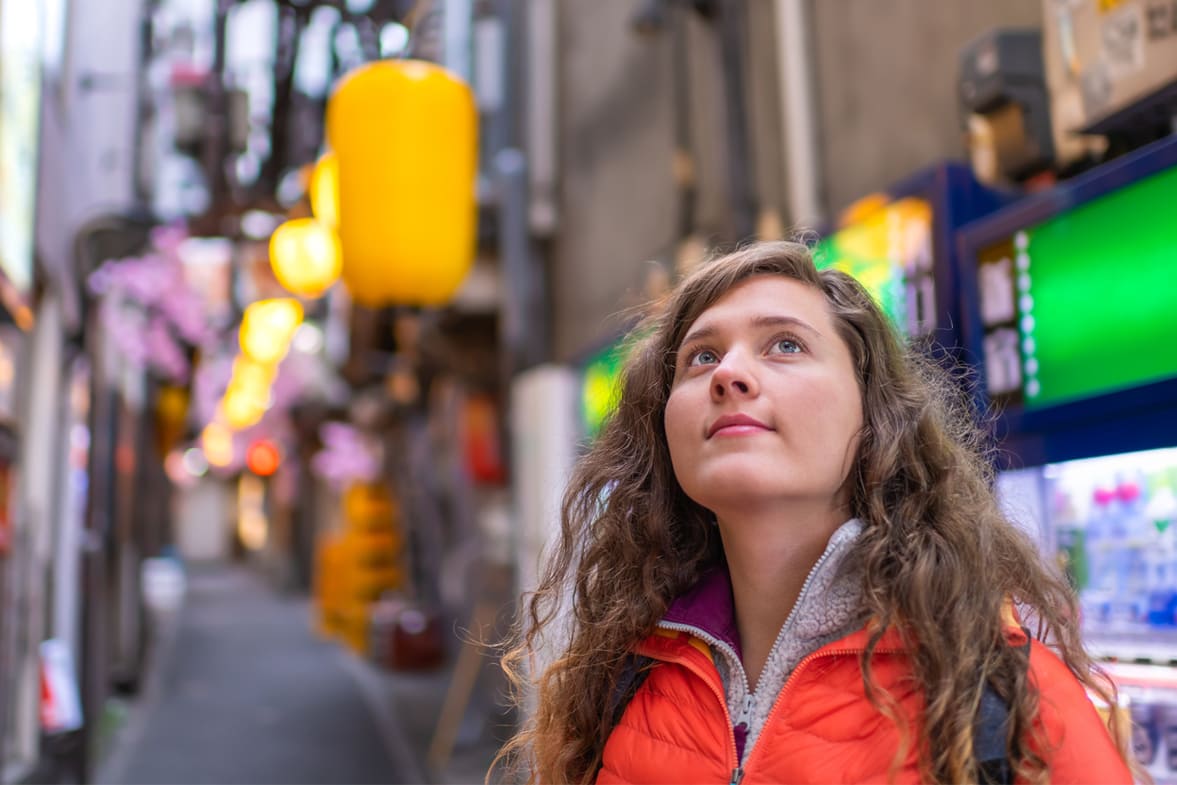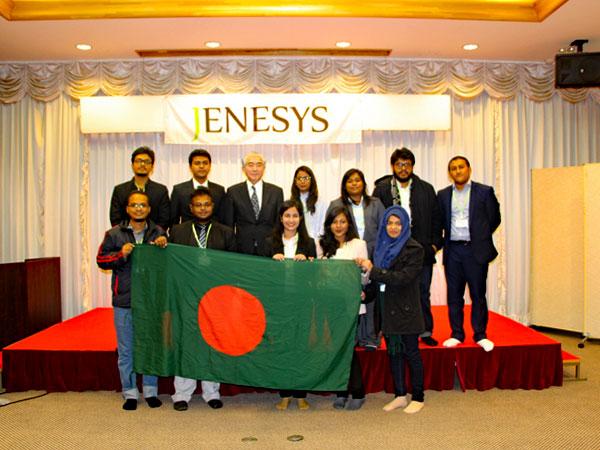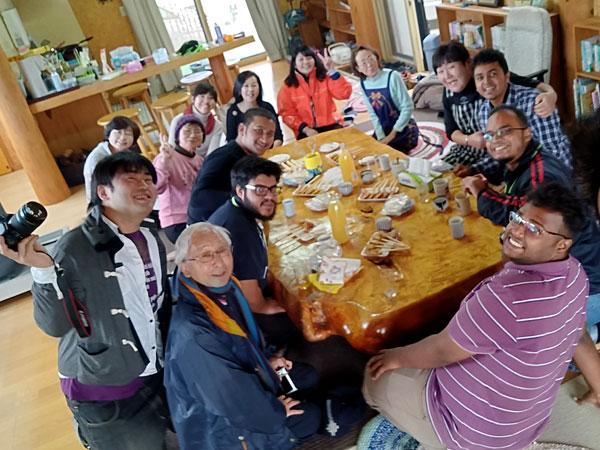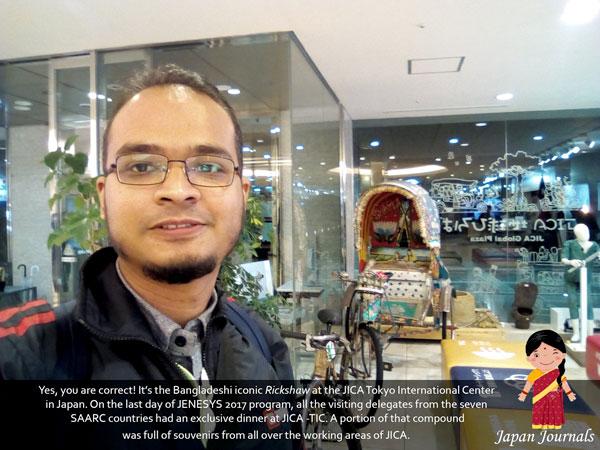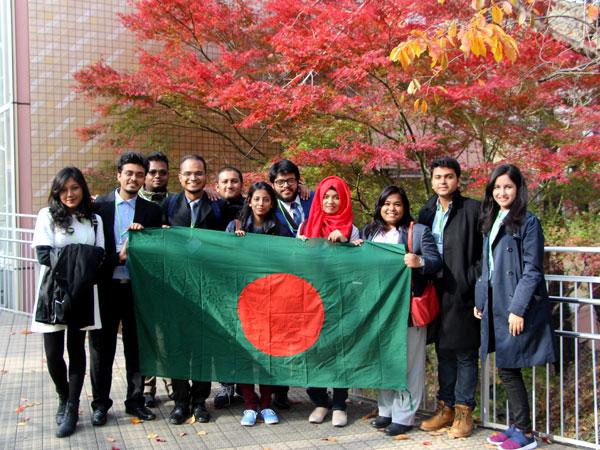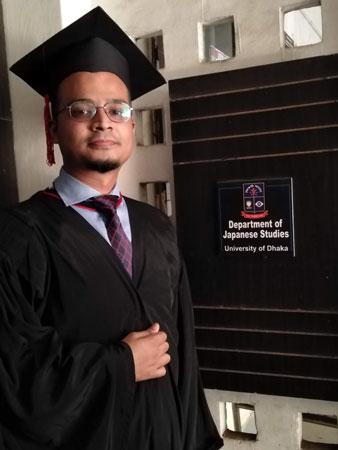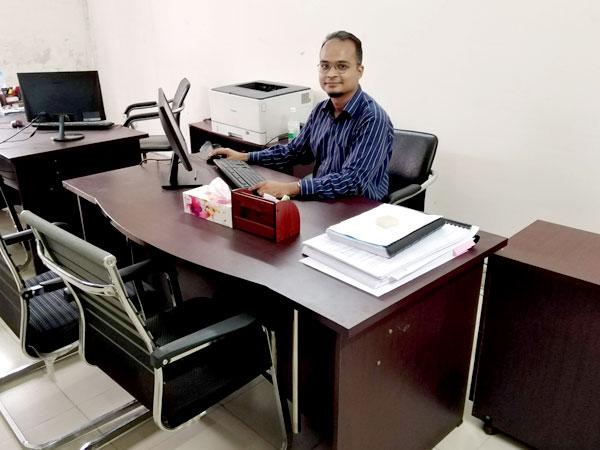―What aspects of Japan did you find attractive while participating in the program? Did you find anything new about Japan?
There are many aspects of Japan that I found very attractive while participating in the program. I have read a few books about the economic development of Japan. But I could not realize the expansion of the development I did not stay in rural Japan.
Firstly, I was amazed to see the well-balanced economic development of rural areas in comparison to the city areas. A farmer family in Nanbu town can afford the same kind of home appliances, even the toilet fixtures as a city hotel. The farmers have multiple cars, hi-speed internets and good communication and transport facilities.
Secondly, I was amazed to see the well-designed & well-organized urban planning & architecture. The roads, terminals, buildings and landscapes are very responsive and user-friendly. The architecture and the space planning of the buildings preserve the traditional identity while accommodating the latest technologies in complete harmony. Like we stayed in a hotel that had automatic washlets and tatami mat floors at the same suite. The transitions of the floor finished materials were used in such a way that didn’t look odd and enhanced user experience & comfort.
Thirdly, the modesty and manner of the Japanese people. No matter how developed the infrastructure was, if the behavior of the people was discriminating, it would be a different experience. I was amazed by the diligence, calmness and discipline of the Japanese people both in rural and urban areas. They were very friendly, cooperative and forgiving to the foreigners.
The above-mentioned aspects were all new to me and this list will go on. But particularly one thing I can notify, which was new to me, was the Japanese effort for noise reduction. I would like to say that even a city market in Japan is quieter than the alley of my house in Dhaka.
―How was the support provided by JICE staff and coordinators during the program? Please tell us in details about the good points of their support. If you noticed something that could be improved, please kindly inform us.
The support provided by JICE staff and coordinators during the program was very professional and cooperative. They had shared useful pieces of information and instructions during the tour. Two of the coordinators were very cordial and worthy of mention. They were Tivoli Kikuchi san and Junko Sato san. Their patience, talent and way of communication were extra-ordinary and edifying. The good points of their support can be categorized as below:
Forgiving: As foreigners, we did not a lot of rules and customs. Though the coordinators instructed some of them each time, but some of us failed to follow. The reason may be simply habitual, lack of attention, reluctance, lack of knowledge about Japanese etiquette or arrogance in a rare case. But the coordinators were very understanding. They always made a way out to solve the issue.
Good Communicators: The coordinators were good in English. So we could easily communicate our problems to them.
Industrious: I worked as a coordinator in my home country. So I know how hectic a day goes with a bunch of young foreigners. Compared to that experience, I should say that the coordinators were very industrious and professional at their job. I saw them awake late at night ensuring everyone had got to bed properly.
Open to other cultures: As Muslims, we and our fellow Maldivians had some self-restrictions in food and daily prayers. The coordinators were pretty understanding regarding this issue and helped out where needed.
Caring for health issues and hygiene: The coordinators checked our temperatures daily and provided us necessary masks. They also ensured that we sanitize our hands before eating. In these days of COVID-19 pandemic, I have realized how important these initiatives were to make the program safe and ensure our safe return home.
―Please tell us your career path after participating in JENESYS. Do you think the participation influenced on your decision making of your career?
When I participated in JENESYS, I was working at an architectural consulting firm. After participating in JENESYS, I started to look for architecture-related jobs where I can put my Japanese language skill to work. For this purpose, I registered for JLPT N5 examination and passed it with 75.5 percentile rank in July 2018. I also applied for the Japanese Government MEXT Scholarship 2020 through the Department of Japanese Studies (DJS), University of Dhaka. My research proposal was “Understanding the solid waste disposal habit of urban dwellers for ensuring a clean and healthy environment in metropolitan areas: A contextual comparison of some selected streets in Dhaka and Tokyo”. I was among the top five for the DJS’s recommendation. But only two of us were recommended.
Then, with the responsibility for financing my family, I focused on my career as an architect. In August 2019, I achieved the full membership of the Institute of Architects Bangladesh (IAB) which works as a license to practice as a registered professional architect in Bangladesh. In September 2019, I was offered the job of the Assistant Architect at PWD-PIU in JICA assisted Urban Building Safety Project. Thus a dream came true to work with Japanese Architects and professionals.
So I think that the participation in JENESYS has a deep influence on the decisions regarding my career.
―Do you still contact with the host family or any Japanese people you interacted during the program? If so, is there any episode you can share with us?
Yes, I still contact with the host family and other Japanese people that I interacted during the program. Okasan and his two sons are my Facebook friends. I have several conversations with Okasan and invited to visit Bangladesh.
I also like and share her post and she also does the same. I also met another person at the shopping mall. I also have conversation with her time to time.
―After participating in the program, do you continuously disseminate information about Japan? If so, please share us your activities in details.
Yes. I have created a Facebook page named ‘Japan Journals’. Through this page, I have shared the photos of JENESYS program with few lines that describes the photo. I also invited my fellow members of JENESYS to contribute to this page. Besides, many photos are also shared on my Facebook, Instagram, Twitter and Whatsapp account regarding the JENESYS program.
I have also introduced, encouraged and counseled many young people about the application procedure and details of the JENESYS program. I also encourage them to learn Japanese so that I can have a partner to practice my Japanese skills.
I also join and invite my friends to join the programs organized by the Embassy of Japan in Bangladesh. For example, Japan Fest 2018, Japan Film Festival 2019 and so on. I am also a member of the library at the Embassy. Unfortunately, Japan Fest 2020, which was to be held on February 8, was canceled due to the COVID-19 pandemic. Moreover, I follow and share the posts of the ‘Embassy of Japan in Bangladesh’ Facebook page regularly.
